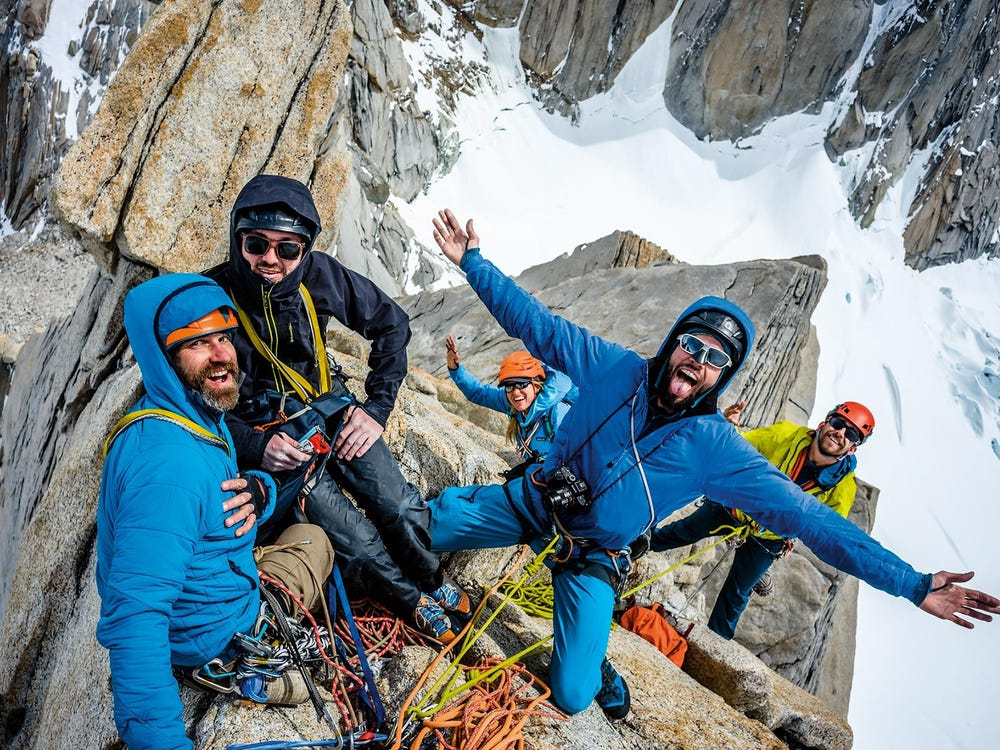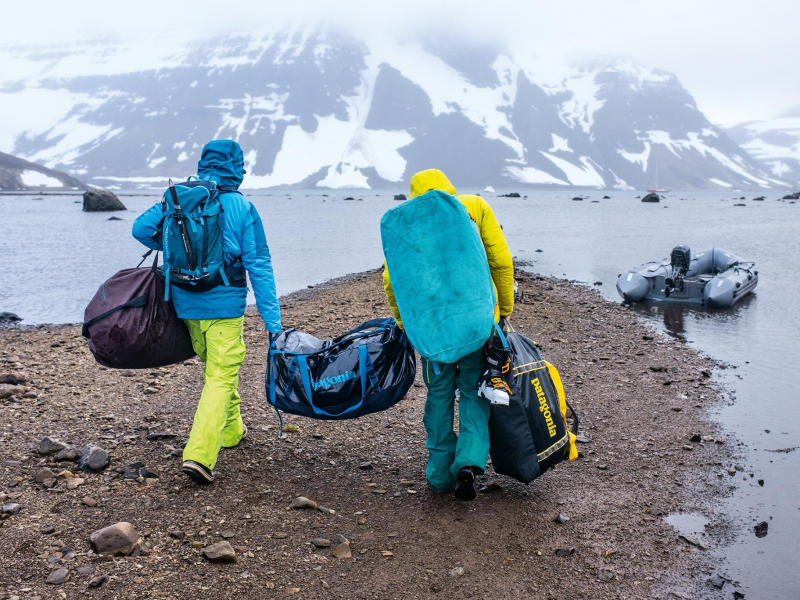- Patagonia won the UN’s Champions of the Earth award for entrepreneurial vision for its dynamic, thorough policies that place sustainability at the center of a successful business.
- Patagonia has a long history of integrating sustainability with its business.
- It empowers shoppers, employees, and even the company itself to act as environmental activists.
Before it became a household name, Patagonia was a small outfitter of climbing tools, tucked into a Santa Clara, California, building that still smelled like the meat-packing plant it had once been.
In the 16 years prior, its founder, Yvon Chouinard, an accomplished rock climber, had gone from selling hand-forged mountain climbing gear to the largest supplier of climbing hardware in the US.
The year was 1973. More specifically, it was one year after the first-ever UN environment conference, two before the term “global warming” entered the public domain in the title of a scientific paper, and three after Patagonia made its first risky environmental business decision.
Patagonia had earned a bad rap in 1970 for its environmental impact. Its pitons were damaging the rock. And, after ascending a once-pristine route to find it newly disfigured by their gear, Chouinard and his partner Tom Frost decided to phase out the most profitable part of their business. The decision was explained to shoppers in the company's 1972 catalog, followed by an impassioned 14-page essay by the climber Doug Robinson, and the pitons were replaced by aluminum chocks that could be wedged, not hammered. The replacements were wildly successful.
Flash-forward to September 2019 and Patagonia is named a UN Champion of the Earth, the UN's top environmental honor, for its entrepreneurial vision.
Why? Because in its last 50 years, Patagonia has made a habit out of prioritizing sustainability and adapting its highly successful business model to accommodate it.
Patagonia walks the walk.
In the '80s, Patagonia voluntarily imposed a 1% "earth tax" on itself that donates 1% of its profits to grassroots environmental organizations. (As of October 2019, it's donated over $100 million total.) The company started using recycled polyester from plastic soda bottles in the early '90s. After workers got headaches from the formaldehyde on finished cotton, it went organic in the mid-'90s. In 2012, it was the first California company to sign up for voluntary B Corp certification. In 2016, it donated 100% of its Black Friday sales ($10 million) to environmental organizations. It even makes its own beer out of a regenerative grain that restores biodiversity and stores carbon. And so on.
Currently, almost 70% of Patagonia's products are made from recycled materials. By 2025, the goal is to be using 100% renewable or recycled materials.
An examined business, like an examined life, is intensive. Patagonia gets into the weeds.
Once you start, it's hard to stop. Or, in Chouinard's words, "living the examined life is a pain in the ass."
Patagonia examined the paper it used in its catalogs, the sources of its electricity, and the amount of oil its employees consumed on their way to work. Working with an outside auditor and an in-house corporate responsibility specialist, it established working conditions and adequate pay for those who actually make Patagonia clothes. On top of that, Patagonia measured the environmental impact of certain articles of clothing and published the findings in The Footprint Chronicles. It tried to make good things and do minimal harm.
And when it did do harm, Patagonia adapted. Criticism from PETA led the company to change wool manufacturers in 2005 and again in 2015. In 2016, it released a set of guiding ethical principles for the treatment of animals, land-use practices, and sustainability.
There is such a thing as sustainable shopping. But it's not frequent or trend-based.
Sustainable shopping can sound paradoxical; the desire to buy newer, better, unnecessary things causes waste. Capitalism causes waste. But it's also true that people have needs that products fulfill, and it's true that not all products can last a lifetime. The responsible retailer must then first make products that don't require frequent replacing and, second, encourage people to repair and reuse what they already own.
For Patagonia, this arm of sustainability is Worn Wear.
The Worn Wear program shows people online how to step by step repair their Patagonia purchases, and how to recycle an item when it's eventually beyond repair. Shoppers can send their used gear in the mail in return for store credit, and other shoppers can buy it at a discount.
Patagonia treats its customers and employees like activists.
Patagonia also encourages its employees to act as activists. Its environmental internship program allows employees from all parts of the company to leave their roles and, instead, work for an environmental group of their choice for up to two months. They still receive their paychecks and benefits. Local environmental groups get a free intern, and employees bring back new inspiration and a renewed commitment to the environment upon their return.
It also empowers site visitors to act as activists. Patagonia Action Works connects them directly with the company's grassroots grantees. You can search by city, state, or grantee to see how to get involved immediately.
It also treats itself as an 'activist company' on their behalf.
Patagonia considers itself an "activist company," which made it an early rarity in corporate America. For five decades, it has forgone political neutrality.
It's led boycotts (Outdoor Retailer trade show, 2017) to protest legislation that would transfer federal lands to the state. In Patagonia v. Trump, it sued the United States government and President Donald Trump after the administration proposed reducing two national monuments by up to 85%. In June 2018, it said it would donate the $10 million received from President Trump's 2017 tax cuts to groups working to protect vulnerable resources.
This is the largest elimination of protected land in American history.
Take Action: https://t.co/biZPxo7PHh#BearsEars pic.twitter.com/OqW9FHPk3Q— Patagonia (@patagonia) December 4, 2017
Patagonia's entrepreneurial vision addresses sustainability genuinely and dynamically.
Sustainability is a many-headed beast. It requires comprehensive, dynamic solutions and the participation of local, federal, corporate, and individual action. Patagonia tries to incorporate all four. And it does so with an energy that's ratcheted up to match the urgency of the task at hand.
Recently, the company revised its mission statement. It used to read: "Build the best product, cause no unnecessary harm, use business to inspire and implement solutions to the environmental crisis."
Today, it simply says, "We're in business to save our home planet."



